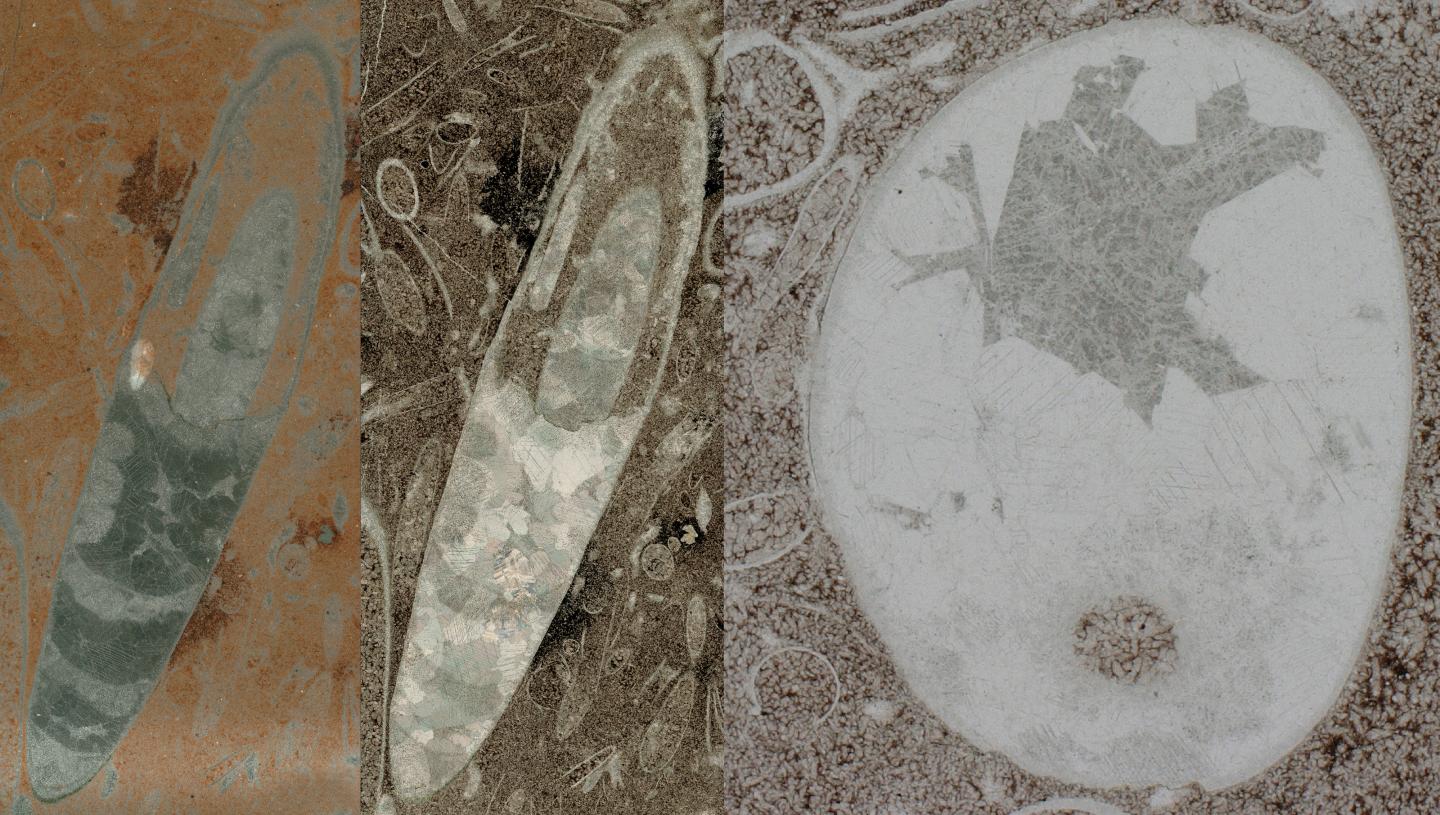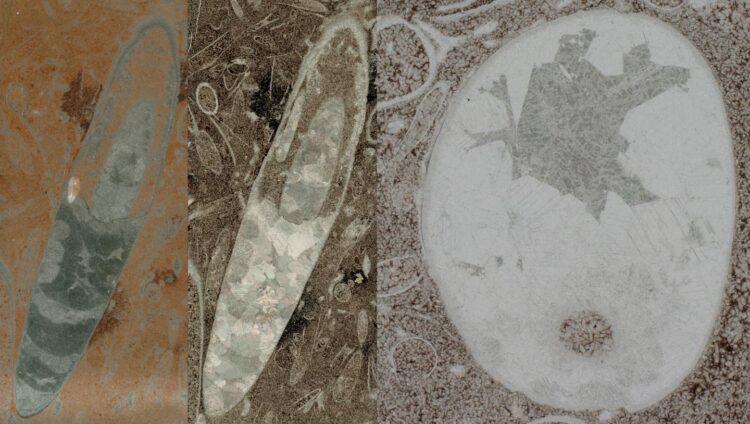Fossil find from Canada could rewrite the evolutionary history of invertebrate organisms

Credit: Gregor Austermann / Communications Biology
The possibly oldest cephalopods in the earth’s history stem from the Avalon Peninsula in Newfoundland (Canada). They were discovered by earth scientists from Heidelberg University. The 522 million-year-old fossils could turn out to be the first known form of these highly evolved invertebrate organisms, whose living descendants today include species such as the cuttlefish, octopus and nautilus. In that case, the find would indicate that the cephalopods evolved about 30 million years earlier than has been assumed.
“If they should actually be cephalopods, we would have to backdate the origin of cephalopods into the early Cambrian period,” says Dr Anne Hildenbrand from the Institute of Earth Sciences. Together with Dr Gregor Austermann, she headed the research projects carried out in cooperation with the Bavarian Natural History Collections. “That would mean that cephalopods emerged at the very beginning of the evolution of multicellular organisms during the Cambrian explosion.”
The chalky shells of the fossils found on the eastern Avalon Peninsula are shaped like a longish cone and subdivided into individual chambers. These are connected by a tube called the siphuncle. The cephalopods were thus the first organisms able to move actively up and down in the water and thus settle in the open ocean as their habitat. The fossils are distant relatives of the spiral-shaped nautilus, but clearly differ in shape from early finds and the still existing representatives of that class.
“This find is extraordinary,” says Dr Austermann. “In scientific circles it was long suspected that the evolution of these highly developed organisms had begun much earlier than hitherto assumed. But there was a lack of fossil evidence to back up this theory.” According to the Heidelberg scientists, the fossils from the Avalon Peninsula might supply this evidence, as on the one hand, they resemble other known early cephalopods but, on the other, differ so much from them that they might conceivably form a link leading to the early Cambrian.
The former and little explored micro-continent of Avalonia, which – besides the east coast of Newfoundland – comprises parts of Europe, is particularly suited to paleontological research, since many different creatures from the Cambrian period are still preserved in its rocks. The researchers hope that other, better preserved finds will confirm the classification of their discoveries as early cephalopods.
The research results about the 522 million-year-old fossils were published in the Nature-journal “Communications Biology“. Logistic support was given by the province of Newfoundland and the Manuels River Natural Heritage Society located there. The publication in open-access format was enabled in the context of Project DEAL.
###
Media Contact
Anne Hildenbrand
[email protected]
Original Source
https:/
Related Journal Article
http://dx.





